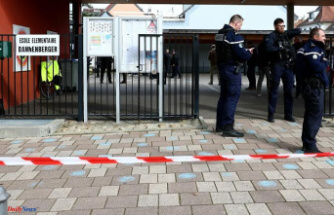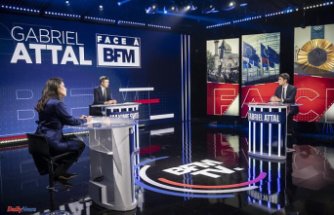Grifols shoots in the Bag after introducing a therapy against Alzheimer's
A Spanish laboratory could be the key to besiege to Alzheimer's. While there are still questions to be solved, the results of a clinical trial developed by Grifols and that they have just been presented in Barcelona put it in the center of the stage a new way of addressing one of the great evils of the western society. It will not be a drug but a procedure of extraction of plasma to clean the brain from the accumulation of proteins neurodegenerative disorders that are associated with the disease.
With this technique, according to the authors of the study, the patients in stage moderate (those who need constant supervision to the activities of daily living) showed a slowdown of 61% in the progression of Alzheimer's disease in comparison with people of the placebo group. "The effect of the treatment is very remarkable. These findings open new avenues for the research of neurodegenerative disorders in adults and can offer Alzheimer's patients a new modality of treatment," said Oscar Lopez, director of the Alzheimer's Disease Research Center of the University of Pittsburgh (Pennsylvania, USA).
The idea consists of removing one of the proteins that are stored in the brain of patients with Alzheimer's disease, beta-amyloid. Given that circulate in the plasma bound to albumin, the researchers calling for the removal of said plasma to be able to do cleaning and thus limit the impact of the disease on cognitive functions. How? Through the plasmapheresis (a technique well-established and reliable that is based on the plasma exchange and is used for some autoimmune diseases) and its replacement with albumin (a protein to be well tolerated and with multiple therapeutic properties -antioxidant, immunomodulatory and anti-inflammatory-).
Researcher Grfls handling samples of beta-amyloid, the protein extracted from the brain LABORATORIOS GRIFOLSThe results have been "very relevant" in the "stadium moderate", as outlined by the authors during the presentation of the study (AMBER) in the Congress " Clinical trials on Alzheimer's disease (PIP), at the end of last week.
In the words of the spokesman of the Spanish Society of Neurology (SEN), Guillermo Garcia Ribas, "this is the first time in 15 years that a positive result of a multicenter clinical trial in the slowing of Alzheimer's disease", a disease that in 2030 it could affect more than 75 million people, according to estimates of the World Health Organization (WHO).
however, there is no modification in the progression of the disease in people with mild Alzheimer's. And this is one of the questions that we must analyze. As pointed out by García Ribas commenting on this study, "we will have to assess what differences there are between the affected-mild and moderate-to understand why this technique works in a group and not in another". In addition, "it remains to be seen if the albumin is necessary or only sufficient removal of plasma, how much and for how long, for example."
On the same line, Victor Grifols Roura, president of Grifols, says: "we will Continue to explore the potential of the plasma proteins and plasma exchange in further studies". It is precisely this company that, together with the ACE Foundation and the Alzheimer's Disease Research Center of the University of Pittsburgh, launched in 2004 a comprehensive strategy of research on Alzheimer's disease. In this framework was born AMBAR, the clinical trial an international, multicenter, double-blind study in which they participated around 500 Alzheimer's patients from 41 hospitals in Europe and the US.
following this test, the Grifols ordinary shares shot up yesterday nearly 8.8% in the IBEX.
According to the criteria of
Learn more Date Of Update: 13 November 2018, 08:01











